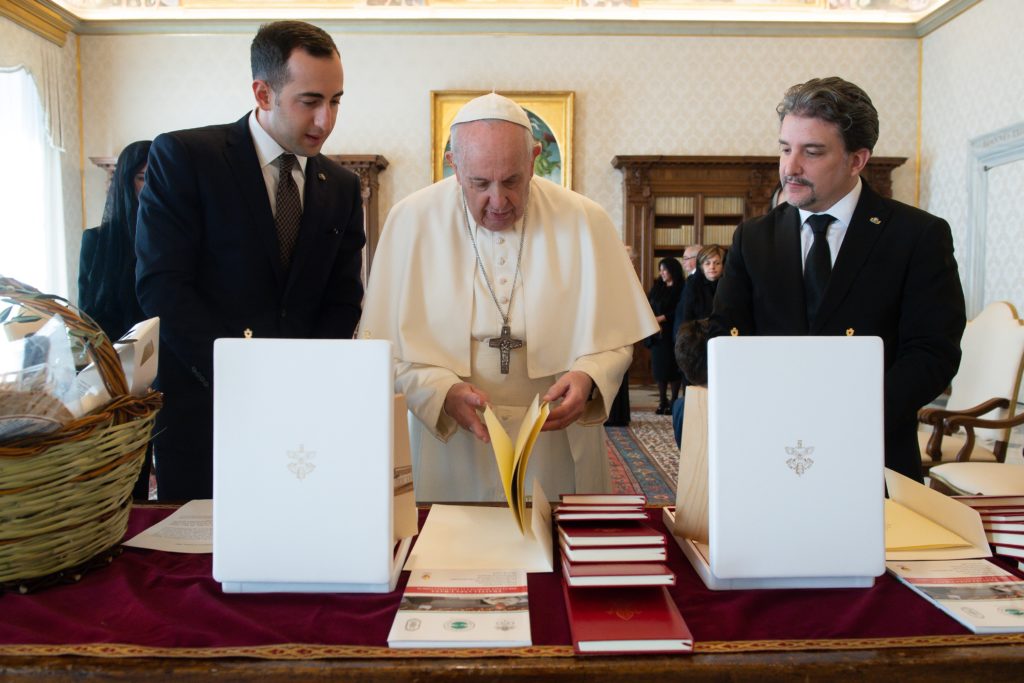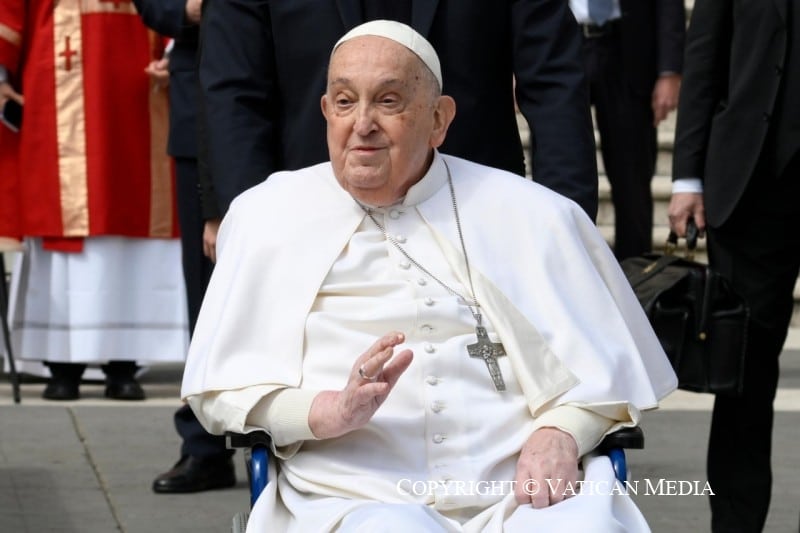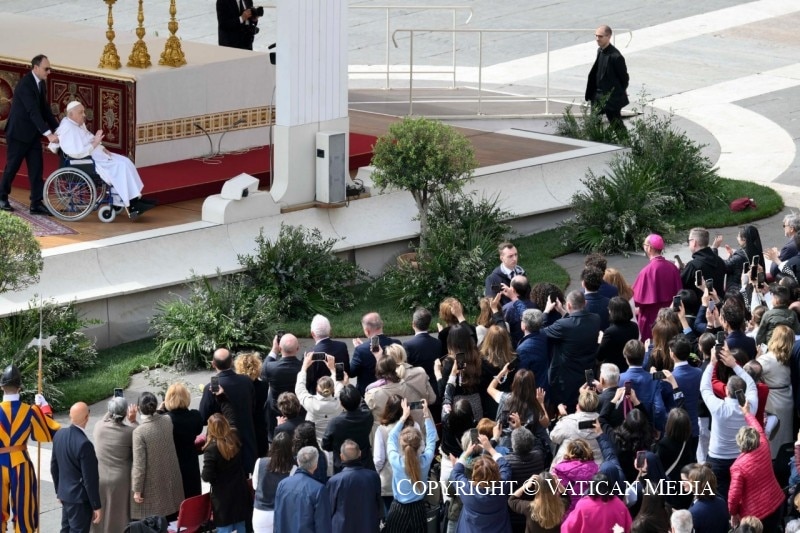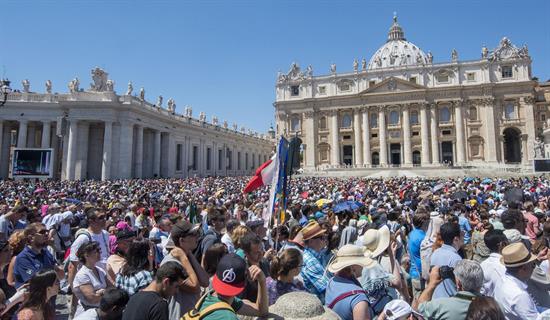Pope Greets Captains Regent of San Marino
Their Excellencies Alessandro Cardelli and Mirko Dolcini

This morning Pope Francis received in audience, in the Vatican Apostolic Palace, the Captains Regent of the Most Serene Republic of San Marino, Their Excellencies Alessandro Cardelli and Mirko Dolcini, who went on to meet with His Eminence Cardinal Secretary of State Pietro Parolin, accompanied by Archbishop Paul Richard Gallagher, Secretary for Relations with States.
During the cordial discussions, satisfaction was expressed for the fruitful cooperation between the Holy See and the Republic of San Marino. Some issues of common interest concerning the international scenario were discussed, such as relations with Europe and the prospects of multilateral diplomacy. Particular attention was paid to the health emergency and the current vaccination program in the Republic, to family policies and birth rate support, as well as to the issue of emigration and humanitarian corridors.
The two Parties confirmed their wish to continue their fruitful collaboration at a bilateral level and in the context of the international community.
The origins of the institution of the Captains Regent date back to 1200, when the existence of two “Consules” is demonstrated. In 1295, they were assigned the title of Captain and Defender and in 1317 they became Captain and Rector, hence the name of “Captain Regent”.
According to Article 3 of the “Declaration on the Citizens’ Rights and Fundamental Principles of San Marino Constitutional Order”, as also provided for in Article 1 of Constitutional Law no. 185/2005, the Office of Head of State shall be held jointly by two Captains Regent.
The Captains Regent are elected by an absolute majority of the votes cast by Parliamentarians in a secret ballot. In this case, the sitting is valid irrespective of the number of Parliamentarians present (Art.1 of Qualified Law no.186/2005). The couple obtaining the absolute majority of votes is elected.
The Captains Regent are elected for a six-month mandate: from 1 April to 1 October and from 1 October to 1 April.
Related

Palm Sunday: “Father, into your hands I commend my spirit”
Exaudi Staff
13 April, 2025
2 min

“Jesus’ passion becomes compassion when we reach out to those who can no longer bear it”
Exaudi Staff
13 April, 2025
5 min

Pope Francis Sends a Message of Hope to the Young People of the UNIV 2025 International Congress
Exaudi Staff
11 April, 2025
5 min

Pope Francis continues his recovery at Santa Marta with signs of improvement
Exaudi Staff
11 April, 2025
1 min
 (EN)
(EN)
 (ES)
(ES)
 (IT)
(IT)

